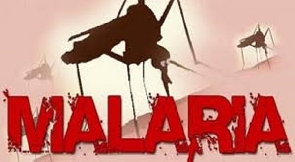 Countries all over the world have been working hard at ensuring that malaria is eliminated globally
Countries all over the world have been working hard at ensuring that malaria is eliminated globally
The whole of Africa, including Ghana, and the world for that matter, have been working hard at ensuring that malaria, a deadly killer disease for many years, is eliminated globally.
In Africa and in Ghana for instance, organisations such as Speak-Up Africa, National Malaria Control Programme and the African Media in Malaria Research Network (AMMREN) including several other partners have been embarking on a project dubbed, "Zero Malaria Starts with Me" campaign across Africa to deal with the disease.
The intent of the project is to galvanise efforts towards eliminating the malaria disease in Ghana and Africa as a whole.
At the back of this, this reporter, McAnthony Dagyenga set out to engage pupils in some Junior High Schools in the New Juaben South Municipality of Eastern Region to find out how knowledgeable and alert they are in malaria matters and how they are contributing to eliminate the killer disease among children.
13-year-old JHS 2 pupil, Theresa, at the Rev. Fr. Lemain Basic School in Koforidua, expressed that "when you contract malaria, you begin to feel cold even though your body is warm; and sometimes you feel like vomiting."
She further explained that, as far as she is aware, she has had that experience on two occasions and that anytime she felt that, she would quickly report to her parents.
"When I report to them, they send me to the hospital and a doctor will check my blood level then give me some medicine; a yellow tablet and paracetamol."
Another female pupil, 12-year-old with the Ascension Presbyterian Basic School in Koforidua, also shared a similar action she took when she felt malaria symptoms.
She said, "Anytime my body is hot and I complain to my mother, she would quickly take me to the hospital and the doctor will give me injection. I don't know the name of the injection but the doctor also gave me paracetamol and 'B-co' and 'multivites'."
Bumping into a group of teenage girls, from the RIIS Presbyterian Basic School also in Koforidua, who had closed from school, I engaged them in a malaria discussion. They also displayed good knowledge about the disease and the actions they took.
Like their earlier colleagues, they each mentioned the malaria symptoms as headache, nausea, fever, feverishness, dizziness and loss of appetite.
"As for me my palm becomes white and my eyes too. I become weak and I don't feel like eating," one of them said.
Another also added that, "my mum took me to the hospital and a nurse pierced my finger and took some blood for testing. I was told I had malaria and so was sent to the doctor for treatment. The doctor gave me some yellow tablets and paracetamol."
When asked if their parents ever chose to give them herbal mixture instead of taking them to the hospital, two of them answered in chorus, "yes, yes, but that is when the hospital medicine doesn't work then our mother will boil neem leaves, 'hwintia' (negro pepper), 'sorowesa' (Black Peppercorns) 'pepree' (cloves) and ginger for us to drink. It is very bitter," they said whiles laughing.
Experts have averred that "Malaria is stopping children from going to school, families from earning a living and perpetuating the cycle of poverty."
It is therefore no wonder that the world, and Africa in particular, is uniting people around the globe to form a movement called "Zero Malaria Starts With Me" to beat malaria down.